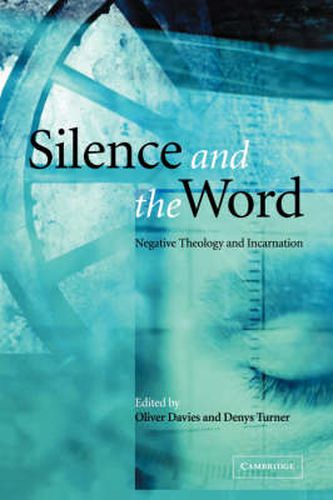Readings Newsletter
Become a Readings Member to make your shopping experience even easier.
Sign in or sign up for free!
You’re not far away from qualifying for FREE standard shipping within Australia
You’ve qualified for FREE standard shipping within Australia
The cart is loading…






Negative theology or apophasis - the idea that God is best identified in terms of ‘absence’, ‘otherness’, ‘difference’ - has been influential in modern Christian thought, resonating as it does with secular notions of negation developed in recent continental philosophy. Apophasis also has a strong intellectual history dating back to the early Church Fathers. Silence and the Word both studies the history of apophasis and examines its relationship with contemporary secular philosophy. Leading Christian thinkers explore in their own way the extent to which the concept of the apophatic illumines some of the deepest doctrinal structures of Christian faith, and of Christian self-understanding both in terms of its historical and contemporary situatedness, showing how a dimension of negativity has characterised not only traditional mysticism but most forms of Christian thought over the years.
$9.00 standard shipping within Australia
FREE standard shipping within Australia for orders over $100.00
Express & International shipping calculated at checkout
Negative theology or apophasis - the idea that God is best identified in terms of ‘absence’, ‘otherness’, ‘difference’ - has been influential in modern Christian thought, resonating as it does with secular notions of negation developed in recent continental philosophy. Apophasis also has a strong intellectual history dating back to the early Church Fathers. Silence and the Word both studies the history of apophasis and examines its relationship with contemporary secular philosophy. Leading Christian thinkers explore in their own way the extent to which the concept of the apophatic illumines some of the deepest doctrinal structures of Christian faith, and of Christian self-understanding both in terms of its historical and contemporary situatedness, showing how a dimension of negativity has characterised not only traditional mysticism but most forms of Christian thought over the years.